Nick Ripatrazone on teaching writing as craft
A former English teacher reflects on the profession
I’ve heard from folks that my article “ 55 Thoughts for English Teachers” has helped them reflect on practice and purpose. That is more than I could have hoped to accomplish when I submitted to
55 Thoughts for English Teachers” has helped them reflect on practice and purpose. That is more than I could have hoped to accomplish when I submitted to  The Millions, an online magazine offering coverage on books, arts, and culture. (The New York Times called it an “indispensable literary site.”)
The Millions, an online magazine offering coverage on books, arts, and culture. (The New York Times called it an “indispensable literary site.”)
I tried to share inspiring reflections on the profession. Here are a few:
1:
You need to love words. You don’t need to love a certain type of book or a particular writer, but you need to love letters and phrases and the possibilities of language. You will spend most of your days dealing with words, and students can sense if words do not bring you joy.
25:
You will often have young women in class who love to write, and who outnumber the men, and yet these young women will stop writing. Teach them to keep writing. Show them their words matter. Introduce them to Mary Shelley, Marilynne Robinson, Jayne Anne Phillips, Toni Morrison, Tayari Jones, Charlotte and Emily Brontë, Alice Elliott Dark, Virginia Woolf, Stacey D’Erasmo, Roxane Gay, Jamie Quatro, Megan Mayhew Bergman, Mary Karr, Susan Sontag, Natalie Diaz, Emily Dickinson, Kate Chopin, Denise Levertov, Adrienne Rich, Anne Sexton, Willa Cather, Joan Didion, Donna Tartt, and, please, Flannery O’Connor.
33:
You may be the only person who will ever read their sonnets, or their prose poems, or their dystopian novellas. Don’t take that privilege lightly.
{ Nick Ripatrazone has written six books of fiction and poetry. Despite his delicious Italian name, he teaches English. Read Ripatrazone’s
Nick Ripatrazone has written six books of fiction and poetry. Despite his delicious Italian name, he teaches English. Read Ripatrazone’s  other 52 thoughts at The Millions.}
other 52 thoughts at The Millions.}
{A note from me, Connie Hale: I was especially thrilled to read #25, because I’ve spent many hours ruminating on how the literature of my high school years—which included heavy doses of Shakespeare, Whitman, Yeats, Hemingway, Hesse, Fitzgerald, Faulkner, et al.—influenced me as a writer. I learned to identify with male heroes, but were the boys ever expected to identify with female ones?
When I was in college in the late 1970s, we women had to fight to get Virginia Woolf, Flannery O’Connor, and Eudora Welty on the curriculum. (The only women who were on the English syllabi at Princeton at that time were Austen, Mary Anne Evans—as George Eliot—and maybe a Brontë sister.) Male classmates couldn’t understand why we clamored about it—and didn’t pick up volumes of Woolf out of free will, either. Our male professors resisted, and then, a few years later, finally relented. They also, around the same time finally granted women English professors tenure.
OK, that was Princeton. Slow to change. But still.}
| |
Share This:




